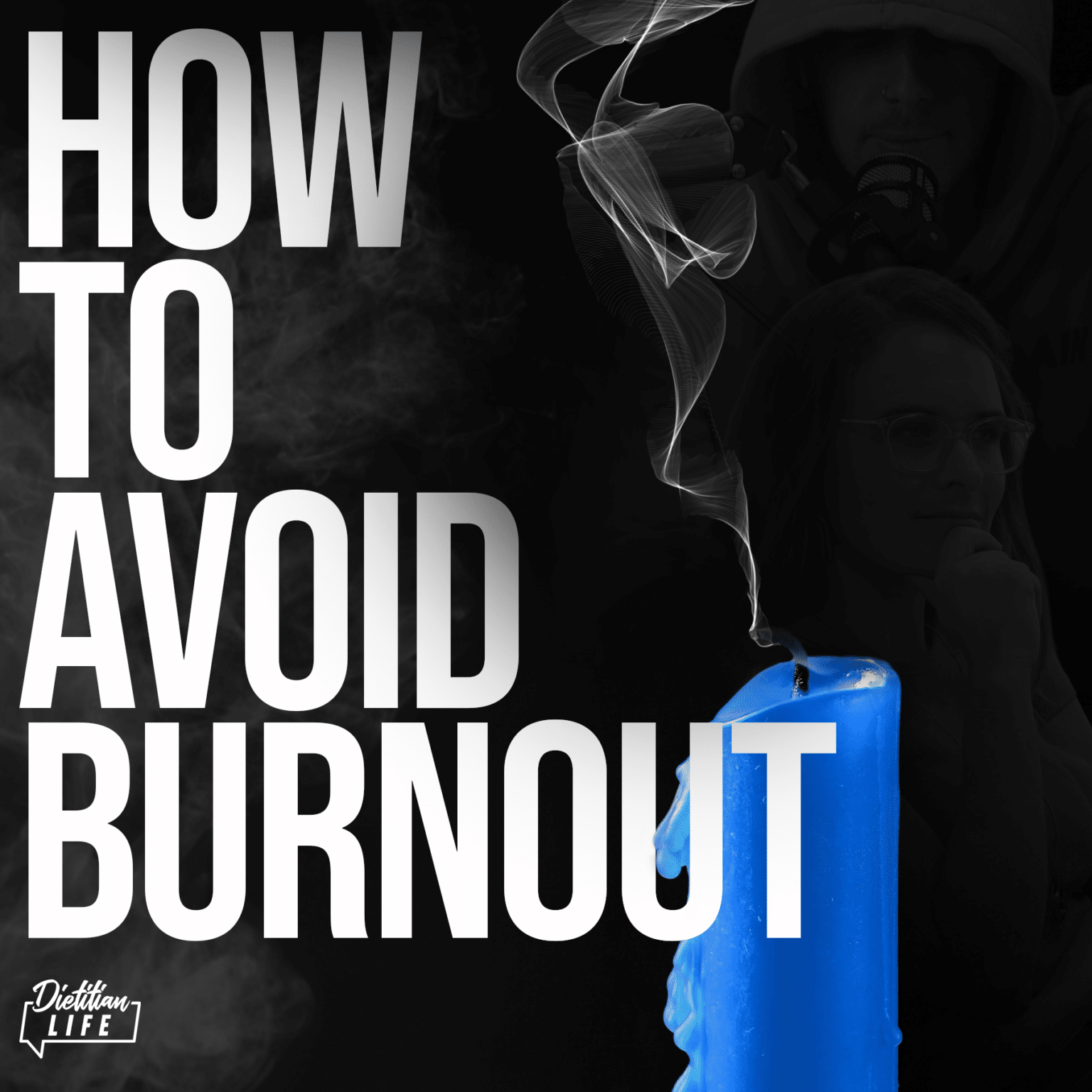Imagine this, you’re a professional dietitian. It’s the role you’ve wanted for years. You’ve spent countless hours studying and working towards this career path and now that you’ve been doing it for a while you aren’t as happy as you thought you’d be. So, what gives?
The good news is that this feeling doesn’t necessarily mean you’re not cut out for the dietitian life. Instead, you may be experiencing ‘burn out’, which can leave you feeling exhausted, unmotivated and disconnected not only from your professional life, but often also from your personal life. The cause? A prolonged period of work-related stress or exhaustion.
So, what can you do if you’re experiencing burn out? Or, more importantly, what should you do to ensure you don’t experience this problem in the future? Here are three important steps every dietitian should implement to avoid burn out.
Don’t Put Self-care on the Backburner
Like most dietitians, you’re probably passionate about what you do. You might go above and beyond for your clients or work extra long hours to get the experience you need to progress in your career. While being hard working and motivated is an essential part of being a dietitian, it’s also important to prioritise your mental health and self-care to ensure you don’t get burnt out.
Self-care is any activity that helps you relieve tension or stress and increases feelings of joy and happiness. It could be reading a book before bed or using your lunch break to get outside and walk around rather than staying couped up in your office. You should take moments every day to practice some form of self-care, especially during periods of high stress. Remember that it’s not possible to pour from an empty cup! Taking just five minutes to clear your mind and relax even on the busiest of days can make a difference not only to how you feel, but to the quality of service you provide your clients.
Be Aware of Compassionate Fatigue
Defined as a “physical and mental exhaustion experienced by those who care for sick people”, dietitians are particularly at risk of compassionate fatigue as our job falls in the category of a ‘helping profession.’ Knowing how to separate your personal and professional life is essential, as it means you won’t take home the problems, emotions and feelings that your clients come to you with throughout the day.
It’s also a good idea to set clear boundaries. As dietetics is a profession that involves both the body and mind, it is inevitable that you will have clients confide in you about serious issues or traumas at some stage. However, when you feel these conversations start to push the boundaries of your scope of practice, it is more helpful to you and the client to refer them to a more relevant professional. Remember that having sympathy for clients without taking on the weight of their emotions is essential to your health and to your performance as a dietitian.
Know When You Need to Off-load
While doing everything all at once might seem like the only way to get ahead in the competitive dietetics industry, it’s important to know your limits in order to avoid burn out. Maybe you need to see less clients in a day. Maybe you need to work on improving your efficiency at completing administrative tasks. Maybe you should take a break from attending out-of-hours events. You might even need to take a step back from certain things in your personal life in order to have some R&R time to yourself. Off-loading work where possible can help to make things easier and prevent you from experiencing the burn out that often comes with trying to do everything at once.
Dietitian Life is your go-to destination for all the latest news, tips and advice on making it as a dietitian. Sign up for a FREE Dietitian Life membership to get exclusive access to the huge library of clinical advice, and practical dietetic resources.
For more tips and tricks, check out our website, Facebook or Instagram and ask us anything!

